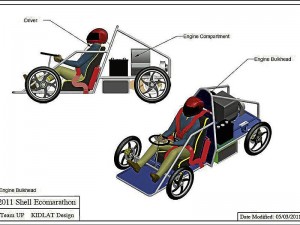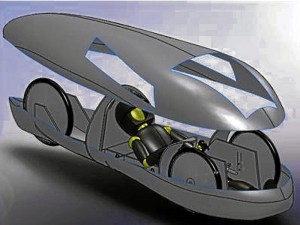Students pave way for energy-efficient future
IN TWO months’ time, teams of students from six Philippine universities will troop to Malaysia, lugging with them their own creations of “energy- efficient” vehicles.
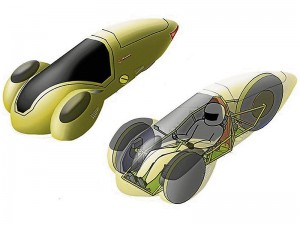
TECHNICAL Institute of the Philippines’ Team Symmetry fields a gasoline-powered futuristic prototype.
While these inventions may turn out to be the students’ golden ticket to winning the much coveted top spot at the prestigious Shell Eco-Marathon Asia 2011, some of these innovations may also become the next sustainable mobility—vehicles that can drive past the borders of fuel efficiency.
“The Shell Eco-Marathon is a competition that challenges students from all over the world to design, build and run a vehicle that can travel farthest with the least amount of fuel. This is a different type of competition,” notes Edgar Chua, country chair for Shell Companies in the Philippines.
“Shell Eco-Marathon is actually a major educational project that encourages innovation, reinforces conservation, and fosters the development of leading technology for greater energy efficiencies,” Chua says during the recent launch of Shell Eco-Marathon Asia 2011.
Energy demand surge
Such innovations and inventions, Chua notes, were necessary as the global energy demand is expected to continue to surge and grow that it will likely double in the first half of the century.
By the middle of the century, parent firm Royal Dutch Plc has estimated that the number of vehicles worldwide will rise from today ’s 900 million vehicles to about 2 billion vehicles.
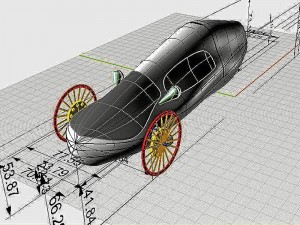
UNIVERSITY of Santo Tomas is set to enter a prototype equipped with a fuel-efficient gasoline engine in this year’s SEM.
“And this is not sustainable. What we need is a variety of fuels and techniques in order to meet this demand for growing mobility, while limiting carbon dioxide emissions, We can do this by a combination of new technology, new energy sources and what we call doing things smarter or smarter mobility,” Chua explains.
To achieve smarter mobility, three aspects needed to be accomplished, according to Chua. Smarter mobility meant coming out with smarter products that can enhance fuel economy; pushing for smart use, referring to driving behaviorS and better technology; and having smarter infrastructure or more efficient roads and mass transport systems.
Breaking efficiency records
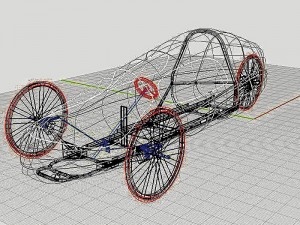
UNIVERSITY of Santo Tomas is set to enter a prototype equipped with a fuel-efficient gasoline engine in this year’s SEM.
Though set in a famous F1 racetrack, the Sepang International Circuit, the four-day Shell Eco-Marathon competition will not be about breaking speed records, but rather about going the farthest distance possible with the least amount of fuel or energy consumed and the least carbon emissions produced.
Over 100 teams in the region are expected to participate this year. The Philippine delegation will consist of seven teams of promising engineering students and professors from the De La Salle University, Don Bosco Technical Institute, Mapua Institute of Technology, Technological Institute of the Philippines, University of the Philippines and University of Sto. Tomas.
For 2011, the teams will be entering vehicle blueprints in either two categories namely “Futuristic Prototypes” for vehicles that yield more streamlined and aerodynamic designs and “Urban Concept” which focuses on the more practical, four-wheeled designs. DLSU is fielding an electric car while UP’s entry is a diesel hybrid. Vehicle designs from the rest of the participating Philippine teams will use gasoline.
This will be the second time that the Philippines will be participating in the international competition. Last year, Team Philippines took home two special off-track awards with Mapua’s Team Atlanta bagging the second place Safety Award while Don Bosco’s team garnered Special Recognition for demonstrating safety compliance.
Beginnings
The Shell Eco-marathon concept began in 1939 when the “Shell Mileage Marathon” scientists in the US challenged each other in an internal competition to see whose car gave the best mileage. The idea was resurrected decades later and served as the inspiration for the introduction of the first Shell Eco-marathon Europe in 1985.
The Shell Eco-marathon Americas meanwhile debuted in 2007, while that in Asia began only last year.
According to Shell, the marathon does not only aim to inspire engineering students to develop innovative approaches to mobility and fuel efficiency.
It was primarily meant to help promote efficient energy use, address environmental concerns linked to the use of fossil fuels, understand current patterns of consumption, and to explore alternative energies.

